Nearly ten years after its debut, iconic cannabis strain Cookies has spawned dozens of offspring that are star attractions on dispensary menus from coast to coast. But that’s not all the coveted weed has spawned. Cookies SF has become one of the most recognized clothing and lifestyle brands in the world, and an expanding chain of cannabis dispensaries bearing the Cookies name is marching across California and other states.
Founder and Chief Executive Officer Gilbert Milam Jr., more familiarly known as hip-hop artist Berner, and grow expert Jai “Jigga” Chang created the Cookies strain, which became the foundation of Cookies Fam Genetics. That branch of the enterprise uses the company’s rare and unique genetics to develop new strains that regularly win competitions and fetch top dollar at retail.
Weed unites people, brings people together, and it’s done nothing but help the world.
Berner, founder and CEO, Cookies
The apparent King Midas of the cannabis industry, Berner turns weed into gold almost like magic. He exhibits an uncommon devotion to the intricacies of all aspects of his empire. Yet he also sees himself on a loftier mission: to make kind bud available to everyone on the planet, one Cookies shop at a time.
“Weed unites people, brings people together, and it’s done nothing but help the world,” he said. “When I think about places like Virginia, Atlanta, and Houston, where people have been crucified for smoking weed for years, I can’t wait until they can walk in a store and buy it and enjoy it, especially the style of weed we’re smoking.”
The ‘Cookiemobile’
On a warm spring night in Santa Cruz, Berner’s fans lined up hours before his show at the Catalyst nightclub, blazing a constant, dank stream of smoke that steadily wafted down Pacific Avenue. This being Santa Cruz, passers-by barely cast a glance.
Like John Madden and Willie Nelson before him, Berner prefers to roll when he travels, and the Cookies bus parked around back is a sight to behold. Wrapped in Cookies blue, which is a dead ringer for a Blue Raspberry Slurpee, the bus looks like something that just rolled out of Willie Wonka’s factory. But for Berner and his Cookies Fam, it’s a rolling, smoking, marketing machine that has logged some heavy miles over the past few years, with five new stores opening in California and Michigan during 2019. Hundreds of fans lined up for the openings, some the night before, and when he arrived on the Cookies bus he glad-handed his way down the line, even inviting a few customers to breakfast.
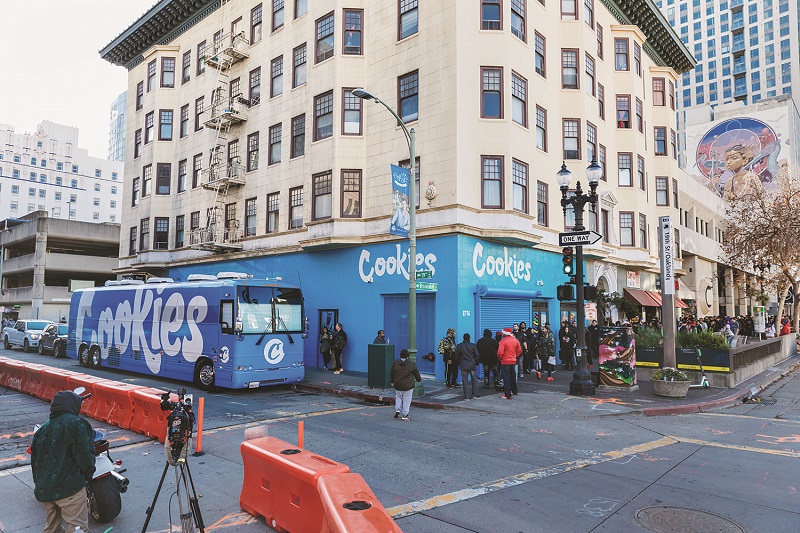
In 2020, Berner may need to find some wings for the Cookies bus: The company plans to expand its retail operations to stores in more than twenty markets across five countries, starting in Canada and Barcelona, Spain.
“We are looking to expand everywhere, and I can tell you we’re going into Canada pretty strong,” he said. “It’ll be interesting, because a lot of the big companies are based out of Canada. We’re going in focusing on straight indoor [-grown plants] and want to give the Canadians the best quality possible, so we’ve been identifying some good breeders and cultivators out there and have some cool projects in Canada.”
Shadow boxing and hotboxing
A few hours before the Santa Cruz show, Berner was submerged in a plush couch backstage. He looked laid-back as he scrolled through his social media feeds, but when he started talking about the myriad projects and business deals he has in the works, it became abundantly apparent his mellow demeanor masks a workaholic, powerhouse CEO who has his sights set on owning the cannabis industry.
“People may not realize, but I’m hands-on with everything,” he said. “I run the Vibes (rolling papers) and my own Instagrams, help with Cookies [stores], approve all the clothing and packaging designs, develop marketing strategies, and work with breeders and the store managers on sales and numbers. It’s a crazy roller coaster right now.”
Before he melted too deep into the couch, Berner jumped up and made like a prizefighter limbering up for a bout, shadow boxing with fat gold chains bouncing in the air. Then he worked his way around the room to greet a growing collection of business partners and friends. Although he doesn’t smoke much weed before shows anymore, he said he can’t resist tasting some of the new strains his cultivation partners have developed. That night’s test product was “Big Apple,” which a breeder developed in anticipation of a Cookies New York store in the near future.
“This is more mellow than it used to be, when there would be 100 to 200 people [backstage] and everyone smoking and just uncontrollable,” he said, not looking terribly sentimental about the past. “We stepped it up, got older, and you want to be able to relax when you get out [on stage], so it’s a whole different vibe. I mix the business and have phone calls all day long, strategizing, meetings, rolling out marketing, this, that, boom, boom, boom. Then I get here and have to perform. Having it a little mellow backstage is nice.”
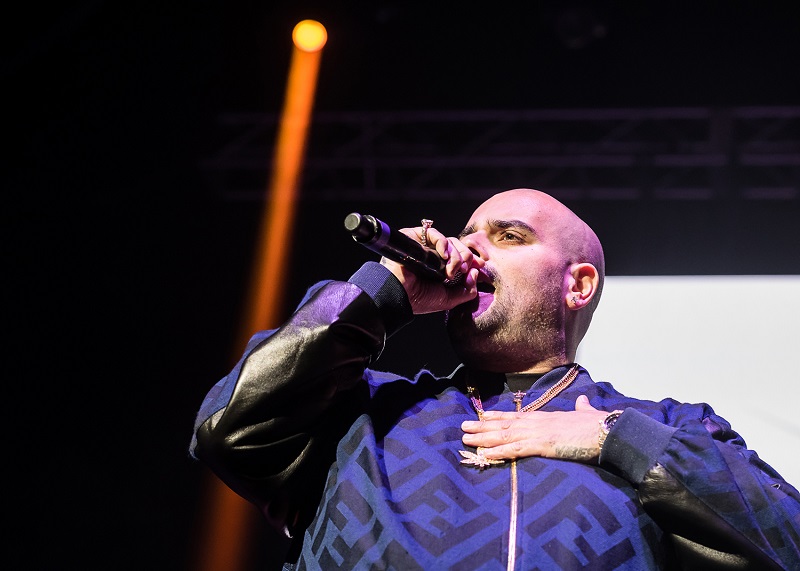
About an hour before his set, his biggest concern was the smoke out on the club’s main floor. “The only problem we have is that it gets too smoky, and it’s hard to rap,” he said. “Rapping for like an hour in that cloud, I swear the crowd makes me high as hell, and I get back on the bus and I’m just lost. It takes me like ten minutes to bounce back, and then okay, I’m cool.”
Meanwhile, there isn’t an alcoholic beverage in sight, either backstage or on the main floor, which is a giant hotbox at this point. Berner’s Hemp2o, a flavored vitamin beverage, is in steady supply backstage, and that’s a good thing, because as more and more Cookies bombers were passed around the room, the smoke built and throats grew parched.
The growing Cookies Fam
It’s perhaps fitting that Berner started his musical career as a freestyle and battle rapper who matched wits and rhymes with all comers during his high school years in the San Francisco Bay Area and Arizona. As he builds his Cookies empire, he’s taking the same approach to expanding his business, always improvising and looking for creative ways to beat his competition to the punch.
While other major players in the industry rely on heavy investment and vertically integrated operations, he has taken a more grassroots approach, methodically building relationships with retail and cultivation partners that fit into Cookies’ grand game plan. He explained the company’s strategy is similar to a franchise model, where existing or new businesses are brought on as partners in the Cookies ecosystem and thereby benefit from the company’s expertise in cultivation, genetics, and retail and marketing, as well as intellectual property.
“We’re pretty hands-on with the way things are rolling out, so we’re not going to face the same struggles as other companies that spent hundreds of millions of dollars to hire people and then couldn’t afford to keep them,” he said. “We’re finding good operators that just need a good brand to compete in the market, and we’re giving them the juice and finding cultivation partners to fuel that business. The only risk is to make sure we stay relevant, and that’s what you see me doing right now, out on the road working my ass off to stay relevant.”
When he launched the Cookies SF store in San Francisco in 2015, hats, T-shirts, backpacks, and hoodies flew off the shelves faster than you could say “C is for Cookies.” Today, in cities around the globe, Cookies fans give each other knowing nods as they pass each other on the sidewalk. Cookies also sells an array of cannabis accessories, including weed grinders, rolling trays, and the latest addition, Vibes rolling papers.
“It took three and a half years to develop Vibes, because the paper industry is one of the most monopolized industries in the world. If you think the weed business is cutthroat, the rolling paper business is fucking cutthroat,” he said. “Everyone was against it. But some of my friends in the music industry supported us, so [the brand grew] naturally and organically and grassroots. And like everything else we’re doing, it is just falling into place.”
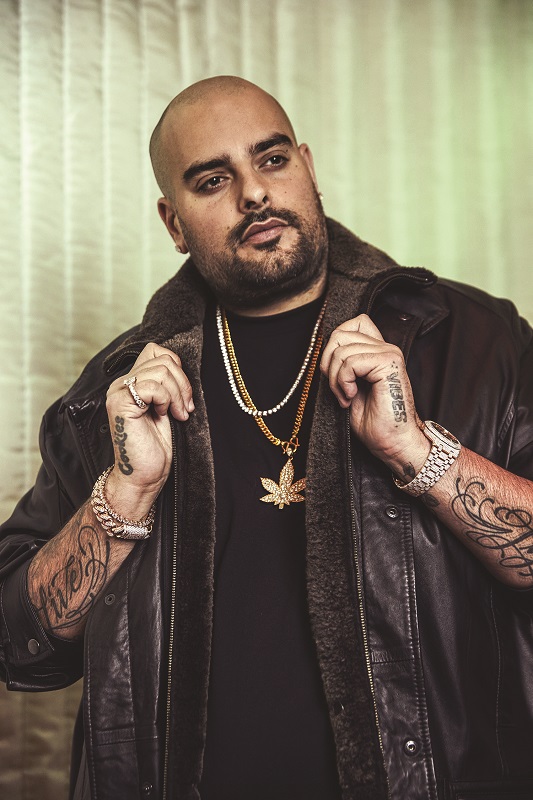
Before the show, Berner orchestrated how his crew should hand out Vibes papers to the fans in line. During his set later on, he asked the crowd to pull out their Vibes papers for an Instagram shot. “We don’t smoke Raw in Santa Cruz anymore!” he declared.
Social media is a key part of most cannabis companies’ marketing strategies, but with Berner running the show, Cookies has an ace in the hole. His Instagram followers have grown from about 500,000 to 1.2 million since 2016. Without Berner and Instagram, Cookies never would have become the worldwide sensation it is today.
Beyond the time he invests in promoting Cookies on social media, he’s also hands-on at cannabis events, hip-hop gigs, and store openings, where he shakes hands, poses for pictures, and chops it up with fans.
“When I see someone who’s bought my brand or supported me, I want to give them the best experience. Because when they leave, they’re gonna tell people ‘I met Bern, and he was a dick,’ or ‘he was hella cool, that’s my guy,’” he explained. “I worked my way up to where people enjoy my music, and I was the underdog in the cannabis game and came from the bottom and worked myself up to be someone people respect. I just hella appreciate people talking to me and think good energy is needed in the world. So, when people show me love, I’m going to show them love back.”
After reading the daily headlines about coronavirus, one of his biggest concerns now is how it will impact his relationship with the Cookies nation.
“Soon I’m gonna be walking around with Purell all the time, spraying people down,” he said, making spraying noises while laughter erupted around the room “I’m gonna lock down that Purell sponsorship!”
It’s hard to say whether that was a joke.
An SF OG
San Francisco has a rich history with weed and music, and Berner has credibility in both worlds. With a Mexican dad and an Italian mom, he represents two ethnicities that were heavy influences in San Francisco over the past century, settling the city’s two most historic and colorful neighborhoods, the Mission and North Beach. His father worked in a Mexican restaurant in the Fillmore district, which was a cornerstone of the Bay Area’s music scene in the 1960s and ’70s. Weed-happy bands like Sly and the Family Stone, the Grateful Dead, and Santana performed at the Fillmore, and jazz and blues musicians played in smaller clubs down the block. If there were something still lingering in the air, a young Berner must have picked up on it.
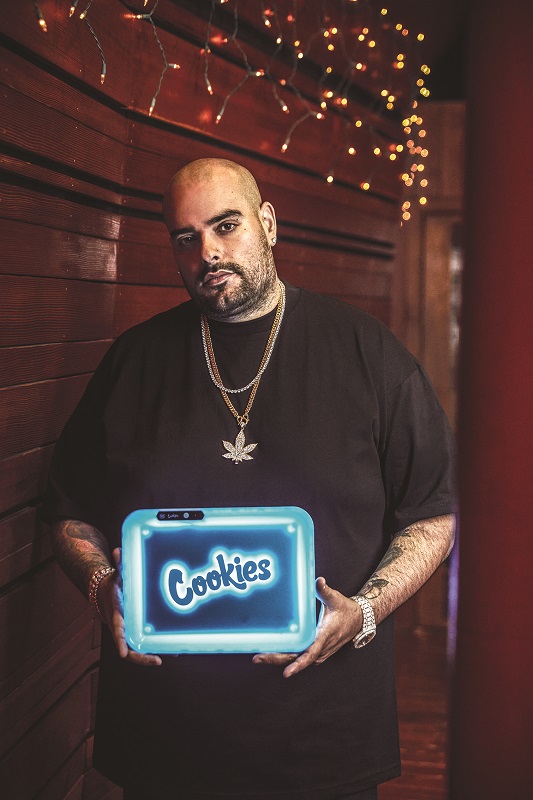
As a teenager in San Francisco in the 1990s, Berner had access to some of the best indoor and outdoor weed in the world and didn’t waste time becoming familiar with as many strains as he could get his hands on. While he carved out his own unconventional artistic and business paths, he said he was inspired by his parents’ work ethic and ambition.
“My parents always supported what I did, even though they didn’t maybe understand it when I was younger,” he said. “My mom said ‘I don’t know why you dropped out of high school, and I hope you know what you’re doing. Sometimes the stuff you’re participating in isn’t really what we wanted, but I know you’re smart and I know you’re going to make the best out of it. Follow your dreams.’ So they supported me with everything I did.”
His family moved to Arizona when Berner was starting high school, but after a divorce his father moved back to San Francisco. Berner bounced back and forth between the two cities. When he started rapping and smoking weed in the early ’90s, the Bay Area was becoming ground zero for high-end cannabis cultivation, and he immersed himself in the culture. By the time he turned 18, he was a pioneer in the legal medical cannabis industry as a budtender in a San Francisco dispensary, where he learned the business from the ground up. Early on, he realized genetics and branding would be key components of the industry moving forward, though most farmers and companies didn’t see the writing on the wall.
We’re finding good operators that just need a good brand to compete in the market, and we’re giving them the juice and finding cultivation partners to fuel that business. The only risk is to make sure we stay relevant.
Berner, founder and CEO, Cookies
From the get-go, Berner realized cultivators were getting the short end of the stick in the retail scene. Farmers would show up with turkey bags full of flower—OG Kush, Super Silver Haze, and Blue Dream were staples of the day—but with no story behind the farmer or the brand, the customers only knew the strain they liked and had no allegiance to the grower.
“The lack of branding was the biggest thing I learned but, more importantly, I learned all about weed and the different genetics and different styles of concentrates,” he explained. “I also learned about the customer and created a really good customer experience. People just enjoyed coming to buy the weed from me, and the conversation, the vibe, the energy. I learned the consumer more than anything working in that spot.”
It’s the genetics, stupid
If one thing helps explain the rapid success of the Cookies operation, it’s the dedication to strong and exotic genetics that keep customers coming back and eagerly awaiting the next great Cookies strain to drop.
The Girl Scout Cookies strain first showed up in the Bay Area around 2010, and Cookies co-founder Jigga is credited with breeding and stabilizing the varietal. After the Girl Scouts of America took issue with the name, growers and retailers dubbed it “Cookies.” The cultivar is believed to be a cross between OG Kush, Durban Poison, and Grand Daddy Purple, although its precise lineage hasn’t been revealed. It’s known for its distinctive earthy, gassy, intoxicating nose and a potent, yet relaxing and cerebral, high. Cookies has won awards across the globe, and breeders have crossed it with a dozens of other strains that have helped build its legacy. Cookies is the Bordeaux of the cannabis world, appreciated by newbies and aficionados alike.
One of the most innovative aspects of the Cookies business strategy is that it identifies talented growers in both new and existing markets and offers partnership deals that can lead to win-win scenarios. Cookies genetics are always a work in progress, and the company has built key partnerships with other flower and genetics brands including Lemonnade and PowerzzzUp in the Bay Area and larger companies like Harvest and Gage in other states. To date, Cookies has several hundred thousand square feet of indoor facilities and tens of acres of greenhouse and outdoor production across the globe. Berner said Cookies recently opened a San Francisco facility dedicated to breeding and pheno hunting, which will allow the company to keep pushing the boundaries of cannabis genetics.
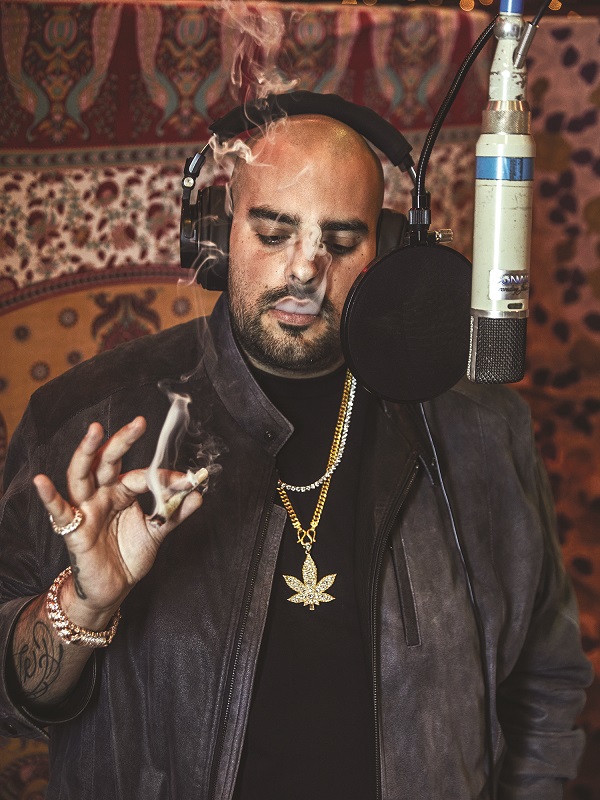
“We just want to make sure we can hunt and find new stuff and keep our menu evolving,” he explained. “If you look at lot of the biggest breeders in the industry right now—even the people that hate on us—it’s funny, because you look at their menu and they’re breeding with about 60 to 70 percent of our genetics. Strains that have Cookies or Sherbert or Gelato or Cherry Pie in them. So, we obviously did something to the game that made us a staple player, and we’re going to keep evolving as things change. And we understand that our genetics is what matters.”
From the get-go, numerous advantages accrue to Cookies’ retail and cultivation partners: a built-in, zealous customer base; marketing and promotion through social media, Berner’s concerts, and other events; and a working relationship with some of the best genetics and cannabis retail minds on the planet.
Music, weed, and the endgame
Berner sees similarities in the way his twin business obsessions, music and weed, impact lives. “When people are smoking and listening to music they are celebrating, and it’s a moment that affects their day,” he said. On the business side, he noted, “Breeders are like producers, and brands are like artists.” When he’s in the studio developing songs, Berner likes to have twenty to thirty different strains on hand to create an all-you-can-smoke buffet that helps guide his creative process.
“I’ll smoke a Gary Payton (a potent new strain from PowerzzzUp genetics) joint and I’ll be super high, and when I need to get back up I’ll go to like a more sativa-type strain to trip it out, and then B-Real (of Cypress Hill) will roll an OG that will make me paranoid. It all makes you feel different so it’s good to mix it up. We keep the studio at like 65 degrees so it’s freezing cold in there, and we chain smoke back-to-back, and that’s how we knock it out.”
With all his music and business commitments, he said he only sleeps four to five hours a night, but his enthusiasm for both keeps him energized. At 38 years old, he can handle the pace for now, he said, but he has no illusions he can keep it up forever.
I just hella appreciate people talking to me and think good energy is needed in the world. So, when people show me love, I’m going to show them love back.
Berner, founder and CEO, Cookies
In an interview in 2019, Berner said a Canadian company offered to buy the Cookies brand for $800 million, although he noted the deal would have been mostly in stock. He passed and later raised $10 million in a friends-and-family investment round so Cookies could invest in infrastructure. He is open to the idea of selling the business at some point, but not before Cookies is in grow rooms and retail shops around the world.
“I’m working this hard to be able to retire young,” he said. “I’ll still do other stuff, but I want to be comfortable and be able to take a little more time with my family and have some more kids and enjoy life.
“I see some businessman looking hella old and tired, and I don’t wanna be doing that,” he said. “I want to be in Hawaii smoking bomb-ass weed I grew in my garage and chillin’ with the fam. So, I’m working this hard now to be able to rest a little bit later.”
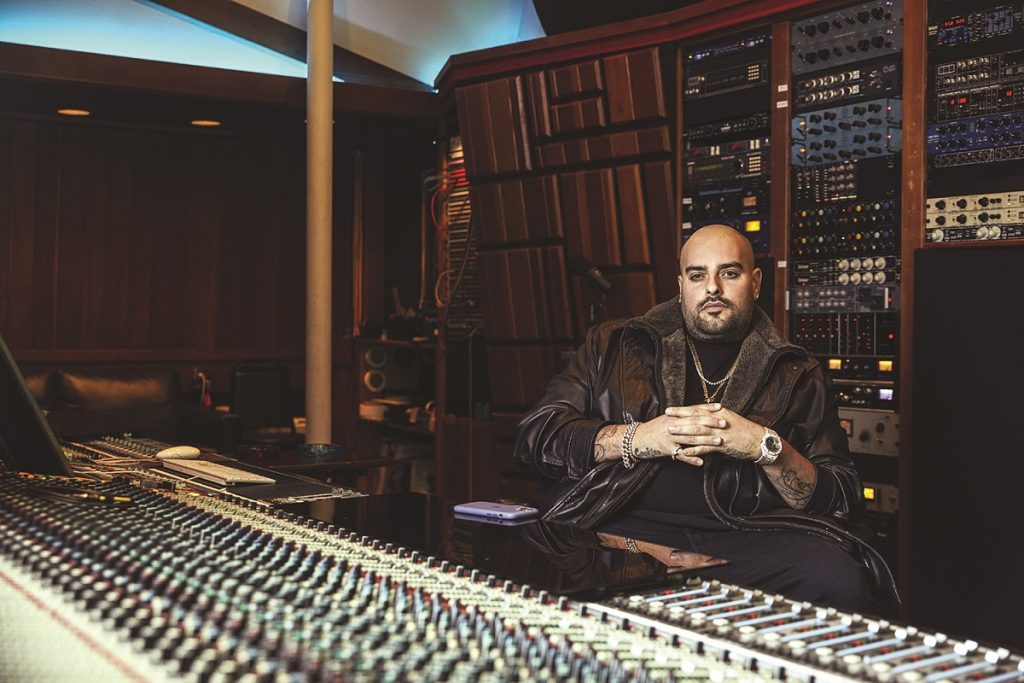
About the photography in this profile:
John Russo, photographer
John Russo, who shot mg’s April 2020 cover, is a celebrity and fashion photographer based Los Angeles. Originally from Ventnor, New Jersey, he began practicing his craft as a teenager with a Kodak camera his father gave him. His work has graced the covers of Vanity Fair, Elle, Esquire, Vogue, Harper’s Bazaar, Marie Claire, and mg Magazine, among other publications, and his book, 100 Making a Difference, brims with portraits of humanitarians and founders of charitable foundations. Among the A-list celebs Russo has photographed are Angelina Jolie, Brad Pitt, George Clooney, Gerard Butler, Gwyneth Paltrow, Julia Roberts, Leonardo DiCaprio, Matt Damon, Matthew McConaughey, Scarlett Johansson, and Vin Diesel. Find him on Instagram @JohnRussoPhoto.
Conway Recording Studios
A tropical oasis in the middle of Hollywood, Conway Recording Studios served as the backdrop for the photoshoot. Since opening in 1976, the studio has hosted diverse iconic artists including AFI, Avril Lavigne, Backstreet Boys, Barbara Streisand, Beck, Black Eyed Peas, Blink 182, Bon Jovi, Britney Spears, Christina Aguilera, Cobra Starship, Dave Matthews Band, Daft Punk, Diana Ross, Etta James, Fergie, Fleetwood Mac, Foo Fighters, Green Day, Jay-Z, Jennifer Lopez, Jessie J, Justin Bieber, Justin Timberlake, Katy Perry, Ke$ha, KISS, Lady Gaga, Leona Lewis, Lil Wayne, Maroon 5, Marilyn Manson, Metallica, Miley Cyrus, Motley Crew, No Doubt, Paula Cole, Queen Latifah, Red Hot Chili Peppers, Rihanna, Rick Ross, Shakira, Snoop Dogg, Talking Heads, Taylor Swift, U2, Usher, Wiz Khalifa, Weezer, and Xzibit.







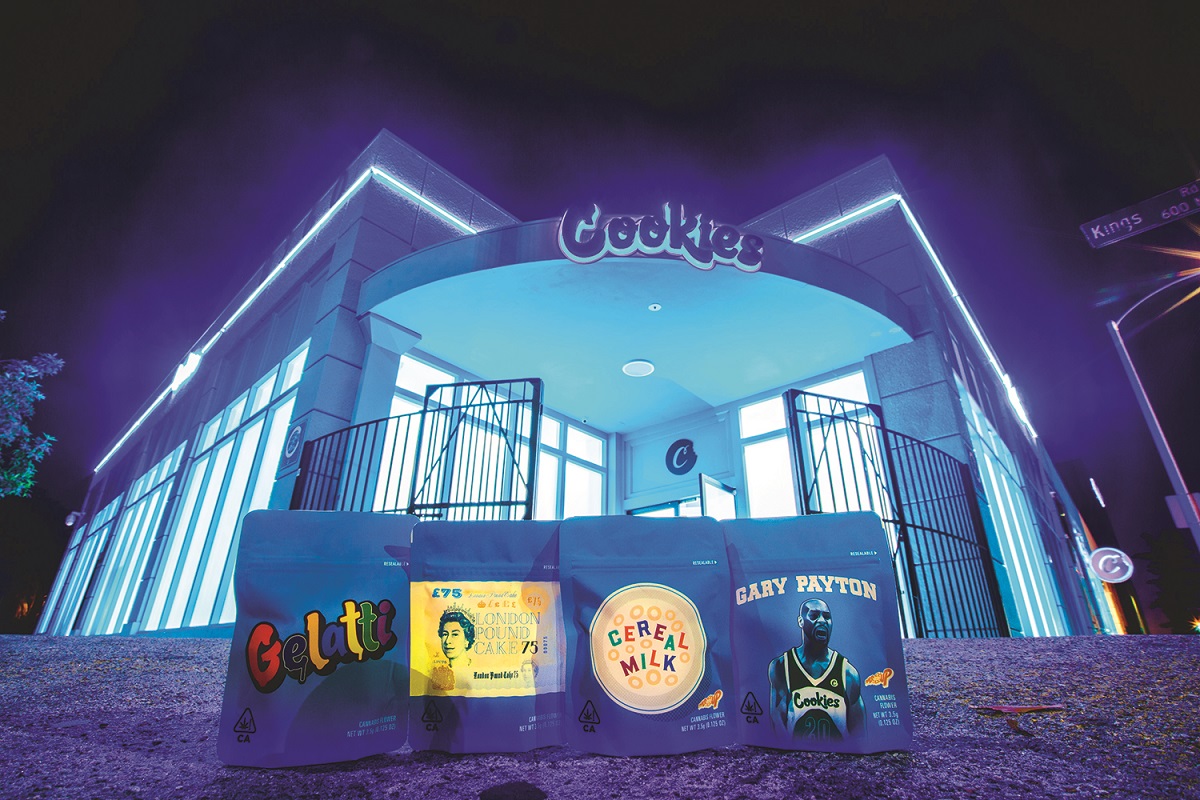



[…] Growth Method: By coordinating with neighborhood operators and sharing their branding and special genes, Cookies was able to rapidly expand into numerous states. […]
[…] bank-like service experience. The shop offers a wide variety of crowd-favorite brands, like Cookies, Cresco, Flower by Edie Parker, and […]
[…] Some of the industry’s favorite cannabis strains are dominant in beta-caryophyllene, such as Girl Scout Cookies, Sherbert, and […]
[…] for its groundbreaking Girl Scout Cookies (GSC) strain, Cookies revolutionized the scene with its dessert-forward varieties. The brand’s highly sought-after genetics tend to have high […]
[…] rapper Berner “just another celebrity cashing in on cannabis” would be a mistake. The Cookies co-founder and CEO (born Gilbert Milam Jr.) is a brilliant business tactician, insightful and deliberate about every […]
[…] these days, but the Cereal Milk strain is much more likely to be universally loved. Developed by Berner’s Cookies, Cereal Milk is the result of a popular Cookies pheno Y Life crossed with the sativa-dominant […]
[…] Hip hop artists have carved their place in the cannabis industry for years, from Snoop Dogg and Wiz Khalifa to Jay-Z and Berner. […]
[…] time a Cookies opens, founder Berner rolls through and is welcomed with a snaking […]